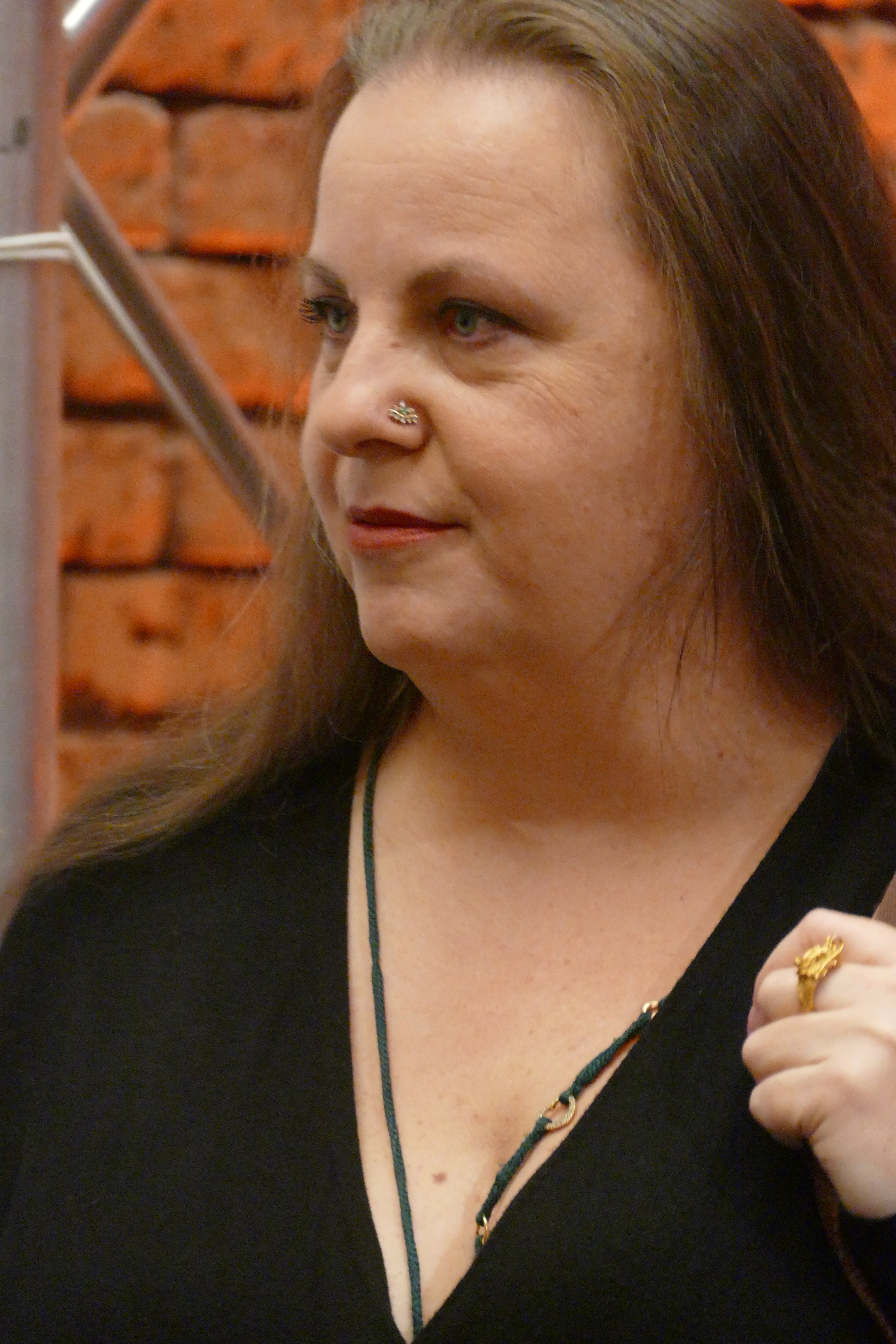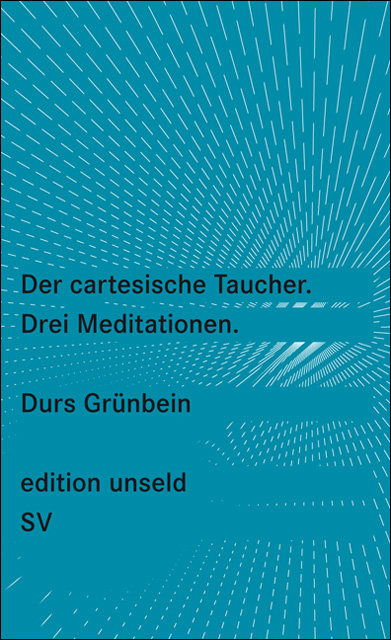|
Friedrich Nietzsche Prize
The Friedrich Nietzsche Prize or Friedrich-Nietzsche-Preis is a German literary award named after Friedrich Nietzsche and awarded by the state of Saxony-Anhalt. It was first awarded in 1996 for a German-language essayistic or philosophical work. The Friedrich Nietzsche Prize is endowed with 15,000 euros. It is awarded by the Prime Minister of Saxony-Anhalt on the basis of proposals by an international jury. The Friedrich Nietzsche Prize is one of the most highly endowed awards in Germany, awarded exclusively for philosophical and essayistic achievements. The International Friedrich Nietzsche Prize replaces the Friedrich Nietzsche Prize awarded by the state of Saxony-Anhalt between 1996 and 2012. Recipients * 1995 Eugenio Trías, Barcelona * 1996 Wolfgang Müller-Lauter, Berlin * 1998 , Basel * 2000 Rüdiger Safranski, Berlin * 2002 Marie-Luise Haase, Berlin and Michael Kohlenbach, Basel * 2004 Durs Grünbein, Berlin * 2006 Silvio Vietta, Hildesheim * 2009 , Freiburg * 2012 ... [...More Info...] [...Related Items...] OR: [Wikipedia] [Google] [Baidu] |
Saxony-Anhalt
Saxony-Anhalt (german: Sachsen-Anhalt ; nds, Sassen-Anholt) is a state of Germany, bordering the states of Brandenburg, Saxony, Thuringia and Lower Saxony. It covers an area of and has a population of 2.18 million inhabitants, making it the 8th-largest state in Germany by area and the 11th-largest by population. Its capital is Magdeburg and its largest city is Halle (Saale). The state of Saxony-Anhalt was formed in July 1945 after World War II, when the Soviet army administration in Allied-occupied Germany formed it from the former Prussian Province of Saxony and the Free State of Anhalt. Saxony-Anhalt became part of the German Democratic Republic in 1949, but was dissolved in 1952 during administrative reforms and its territory divided into the districts of Halle and Magdeburg. Following German reunification the state of Saxony-Anhalt was re-established in 1990 and became one of the new states of the Federal Republic of Germany. Saxony-Anhalt is renowned for its ri ... [...More Info...] [...Related Items...] OR: [Wikipedia] [Google] [Baidu] |
Silvio Vietta
Silvio Vietta (born 7 August 1941, in Berlin) is a German scholar and professor emeritus of the University of Hildesheim. His work has concerned itself principally with German literature, philosophy and European cultural history. His main areas of research are the literatures of Expressionism and Romanticism, and Literary Modernity. He has also published on Martin Heidegger, with whom he had personal contact while a student, and Hans-Georg Gadamer. His recent research has been in European cultural history, in particular the history of rationality. Biography Silvio Vietta is the son of the writer Egon Vietta and Dorothea, born Feldhaus. He studied German Literature, Philosophy, English Literature and Education (1962–68) and received his PhD from the University of Würzburg in 1970 for a thesis on ''Language and the Reflection on Language in Modern Poetry''. Vietta began his academic career as a lecturer in German at Elmira College, Elmira NY, and later taught at the German univer ... [...More Info...] [...Related Items...] OR: [Wikipedia] [Google] [Baidu] |
Bettina Stangneth
Bettina Stangneth (born 1966) is a German philosopher. Known for her work on antisemitism and National Socialism, she is the author of several books, including '' Eichmann Before Jerusalem'' (2014), which won an NDR Kultur Sachbuchpreis (non-fiction book award) in 2011 when it was first published in German. Stangneth was awarded her PhD by the University of Hamburg in 1997 for a thesis on Immanuel Kant Immanuel Kant (, , ; 22 April 1724 – 12 February 1804) was a German philosopher and one of the central Enlightenment thinkers. Born in Königsberg, Kant's comprehensive and systematic works in epistemology, metaphysics, ethics, and ....Stangneth, Bettina (2000). ''Kultur der Aufrichtigkeit: Zum systematischen Ort von Kants Religion innerhalb der Grenzen der bloßen Vernunft''. Würzburg: Königshausen & Neumann. Selected works * (2000). ''Kultur der Aufrichtigkeit: Zum systematischen Ort von Kants Religion innerhalb der Grenzen der bloßen Vernunft''. Würzburg: ... [...More Info...] [...Related Items...] OR: [Wikipedia] [Google] [Baidu] |
Volksstimme (Saxony-Anhalt)
''Volksstimme'' (meaning ''People's Voice'' in English) is a regional daily newspaper published in Magdeburg for northern Saxony-Anhalt, Germany Germany,, officially the Federal Republic of Germany, is a country in Central Europe. It is the second most populous country in Europe after Russia, and the most populous member state of the European Union. Germany is situated betwe .... The paper is owned by Bauer. Its publisher is Magdeburger Verlags und Druckhaus. The circulation of ''Volksstimme'' was 343,000 copies during the third quarter of 1992. Its circulation was 264,000 copies in 2001. The paper had an average circulation of 191,878 copies during the second quarter of 2011.According to IVW, second quarter 2011, Mon–Sa(Details on ivw.eu)/ref> List of editors-in-chief Editors-in-chief of the ''Volksstimme'': References External links * Bauer Media Group German-language newspapers Mass media in Magdeburg Daily newspapers published in Germany G ... [...More Info...] [...Related Items...] OR: [Wikipedia] [Google] [Baidu] |
Ágnes Heller
Ágnes Heller (12 May 1929 – 19 July 2019) was a Hungarian philosopher and lecturer. She was a core member of the Budapest School philosophical forum in the 1960s and later taught political theory for 25 years at the New School for Social Research in New York City. She lived, wrote and lectured in Budapest. Early life and political development Ágnes Heller was born on 12 May 1929, to Pál Heller and Angéla "Angyalka" Ligeti. They were a middle-class Jewish family. During World War II her father used his legal training and knowledge of German to help people get the necessary paperwork to emigrate from Nazi Europe. In 1944, Heller's father was deported to the Auschwitz concentration camp where he died before the war ended. Heller and her mother managed to avoid deportation. With regard to the influence of the Holocaust on her work, Heller said: :I was always interested in the question: How could this possibly happen? How can I understand this? And this experience of the holo ... [...More Info...] [...Related Items...] OR: [Wikipedia] [Google] [Baidu] |
Die Welt
''Die Welt'' ("The World") is a German national daily newspaper, published as a broadsheet by Axel Springer SE. ''Die Welt'' is the flagship newspaper of the Axel Springer publishing group. Its leading competitors are the ''Frankfurter Allgemeine Zeitung'', the ''Süddeutsche Zeitung'' and the ''Frankfurter Rundschau''. The modern paper takes a self-described "liberal cosmopolitan" position in editing, but it is generally considered to be conservative."The World from Berlin" '''', 28 December 2009."Divided ... [...More Info...] [...Related Items...] OR: [Wikipedia] [Google] [Baidu] |
Martin Walser
Martin Walser (; born 24 March 1927) is a German writer. Life Walser was born in Wasserburg am Bodensee, on Lake Constance. His parents were coal merchants, and they also kept an inn next to the train station in Wasserburg. He described the environment in which he grew up in his novel ''Ein springender Brunnen'' (English: A Gushing Fountain). From 1938 to 1943 he was a pupil at the secondary school in Lindau and served in an anti-aircraft unit. According to documents released in June 2007, at the age of 17 he became a member of the Nazi Party on 20 April 1944, though Walser denied that he knowingly entered the party, a claim disputed by historian Juliane Wetzel._By_the_end_of_the_Second_World_War.html" ;"title="nbsp; .... By the end of the Second World War">nbsp; .... By the end of the Second World War, he was a soldier in the Wehrmacht. After the war he returned to his studies and completed his ''Abitur'' in 1946. He then studied literature, history, and philosophy at the ... [...More Info...] [...Related Items...] OR: [Wikipedia] [Google] [Baidu] |
FOCUS
Focus, or its plural form foci may refer to: Arts * Focus or Focus Festival, former name of the Adelaide Fringe arts festival in South Australia Film *''Focus'', a 1962 TV film starring James Whitmore * ''Focus'' (2001 film), a 2001 film based on the Arthur Miller novel * ''Focus'' (2015 film), a 2015 film about con artists Music * Focus (music), a musical technique also known as modal frame * Focus..., American music producer * Focus (band), Dutch progressive rock band Albums * ''Focus'' (Stan Getz album), 1961 jazz album * ''Focus'' (Bill Hardman album), 1984 jazz album * ''Focus'' (Jan Akkerman & Thijs van Leer album), 1985 * ''Focus'' (Cynic album), 1993 metal album * ''Focus'' (Chico Freeman album), 1994 jazz album * ''Focus'' (Souls of Mischief album), 1998 alternative hip-hop album * ''Focus'' (Holly Starr album), 2012 CCM album * ''Focus'' (Arthur Blythe album), 2002 jazz album * ''Focus'' (Diaura album), 2013 Japanese visual kei album Songs * "Focus" (Ar ... [...More Info...] [...Related Items...] OR: [Wikipedia] [Google] [Baidu] |
Andreas Urs Sommer
Andreas Urs Sommer (born 14 July 1972) is a German philosopher of Swiss origin. He specializes in the history of philosophy and its theory, ethics, philosophy of religion, and Skepticism. His historical studies center on the philosophy of Enlightenment and Nietzsche, but they also deal with Kant, Max Weber, Pierre Bayle, Jonathan Edwards, and others. Career Andreas Urs Sommer studied philosophy, theology and German literature in Basel, Göttingen and Freiburg. He obtained his doctorate at Basel University in 1998, and received his ''Habilitation'' in Greifswald in 2004. He was a visiting research fellow at Princeton University in 1998/99 and a fellow at the University of London in 2000/01. In 2008 Sommer became responsible for the "Nietzsche-Kommentar" of the Heidelberg Academy of Sciences. He was also appointed the director of the Friedrich-Nietzsche-Stiftung in Naumburg (Saale). In 2011 he became a professor for philosophy at the University of Freiburg. Sommer also publishes ... [...More Info...] [...Related Items...] OR: [Wikipedia] [Google] [Baidu] |
Durs Grünbein
Durs Grünbein (born 1962) is a German poet and essayist. Life and career Durs Grünbein was born and grew up in Dresden. He studied Theater Studies in East Berlin, to which he moved in 1985. Since the Peaceful Revolution nonviolently toppled the Berlin Wall and Communism in the German Democratic Republic in 1989, Grünbein has traveled widely in Europe, South-West Asia, and North America, and sojourned in various places, including Amsterdam, Paris, London, Vienna, Toronto, Los Angeles, New York City, and St. Louis. He lives in Berlin and, since 2013, in Rome. His production comprises numerous collections of poetry and prose—essays, short narrative-reflexive prose, aphorisms, fragments, diary annotations and philosophical meditations—as well as three librettos for opera. He has translated classic texts from Aeschylus and Seneca, and a variety of authors, including John Ashbery, Samuel Beckett, Wallace Stevens, Henri Michaux, and Tomas Venclova. His works have been transla ... [...More Info...] [...Related Items...] OR: [Wikipedia] [Google] [Baidu] |
Naumburg
Naumburg () is a town in (and the administrative capital of) the district Burgenlandkreis, in the state of Saxony-Anhalt, Central Germany (cultural area), Central Germany. It has a population of around 33,000. The Naumburg Cathedral became a UNESCO World Heritage Site in 2018. This UNESCO designation recognizes the processes that shaped the European continent during the High Middle Ages between 1000 and 1300: Christianization, the so-called "Landesausbau" and the dynamics of cultural exchange and transfer characteristic for this very period. History The first written record of Naumburg dates from 1012, when it was mentioned as the ''new castle'' of the Ekkehardinger, the Margrave of Meissen. It was founded at the crossing of two trade-routes, Via Regia and the Regensburg Road. The successful foundation not long beforehand of a ''Propstei'' Church on the site of the later Naumburg Cathedral was mentioned in the Merseburg Bishops' Chronicles in 1021. In 1028 Pope John XIX gave hi ... [...More Info...] [...Related Items...] OR: [Wikipedia] [Google] [Baidu] |




